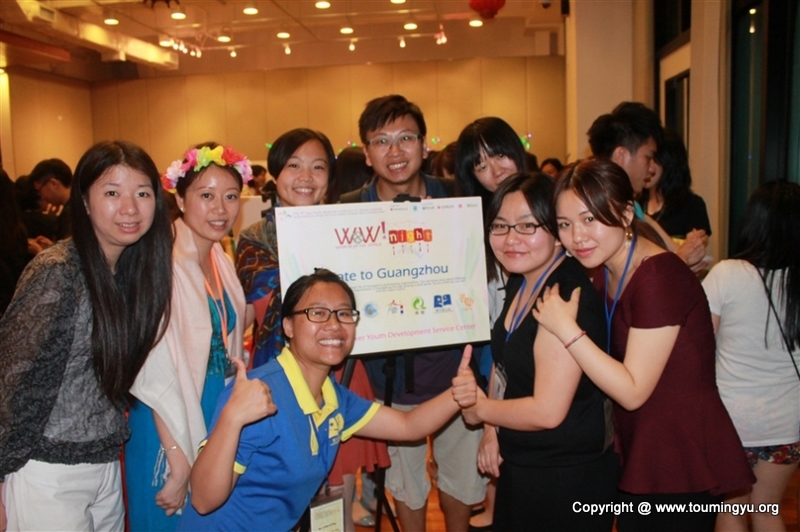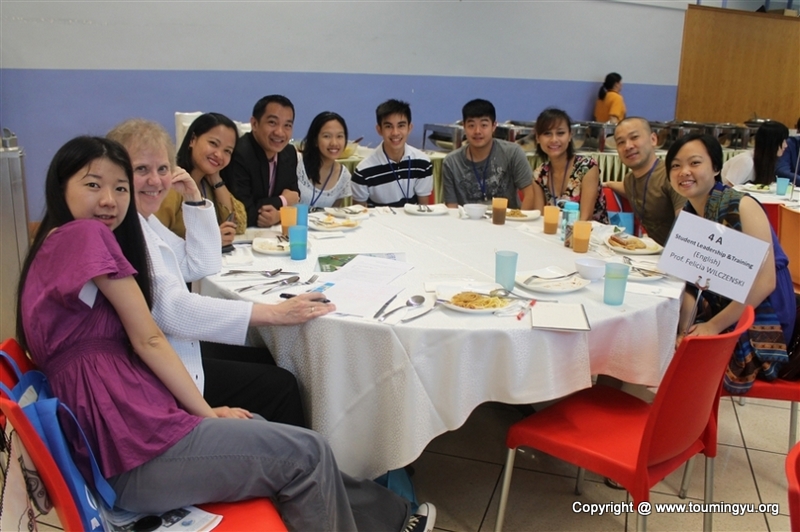|
Qingcao Youth Service Center was initiated by the high school graduates, who are dedicated to create learning opportunities via practice and social environment led by youth peers, cultivating youth with love, ideas and action. It is located in Guangzhou city. Service learning has been developing for over 40 years in America, but it’s a new world for most Chinese educators. When I first heard about it, I thought it was definitely time to put social service into the framework of Chinese curriculum. Later, during a conference I attended in America in 2012, I realized that service learning covers many more things than I had previously thought. This 3-day workshop made me understand key factors such as youth voice, introspection, assessment, etc. I hope we could hold similar meeting in the future and create an opportunity for our partners to learn. In a forum in Qinhuangdao, I got to know Ma Xuejia, a PhD of Hong Kong Lingnan University. I learned from him that an Asia-Pacific conference on service learning will be held by Lingnan University and Sun Yat-Sen University in June in Hongkong. Considering the expensive cost of travel, I applied to attend the conference with support from our NGO partners in Guangzhou. After a discussion, they agreed to admit 10 persons from 10 NGOs to attend the conference without paying service fees, which encouraged us a lot. For most of our delegates, it’s their first time to communicate with scholars and participants from service learning field. There were about 400 delegates coming from about 100 areas to share, discuss and demonstrate wide variety of cases and materials. Of which, 2 groups impressed me.
One is the project from Stanford demonstrated by profession Timothy Stanton. Their course is implemented in 3 semesters (one school year) among undergraduates. The course asks the students to cooperate with one community partner (such as NGO). One semester is used for preliminary research and negotiation so as to determine the research topic. The other 2 semesters are used for further research, during which field participatory research as well close communication with the community partner will be done. Comparing with normal social research, participatory research has 3 advantages. 1) The research topic is the focused one in community, instead of the one imagined by the students in the classroom. 2) The community partner participates the process, instead of the client being researched passively. 3) The final results and suggestions are reflected to the partner or even assist them to implement later, instead of the ones being written on the paper. As an undergraduate, I am also a delegate of a community partner. I found research has been divorced from practice. Though research cannot serve the solution of the current problems, but I still hope the study and intellectual resources possessed by the university can be helpful for the social work in the front. I am enlightened by hearing Stanton’s introduction. Another group is made up by key promoters of service learning in Asia Pacific. They concluded achievements and lessons learned in 40 years, and assumed the vision and challenges in the future. Giles pointed out the conference itself is the demonstration of the development of the learning service which should be internationalized in a globalization background. Shumer said we need to develop a set of evaluation system to demonstrate the efforts of the service learning in the development of the youth. For me, service learning is still limited in high education level. There is still more space for a student to practice in the university. Besides, the limitation of time and ability for a student is not easy to reconcile for the community partner. If there isn’t a balance, the service learning is only for the students, and the community partner will not get enough help. More inspirations came from communications with people from different areas. I got to know the students in Philippine have deep understanding and passion on service learning leading by the university. A teacher from Taiwan Fu Jen Catholic University told me their students participate in service learning in 4 years. Original Article Written by Xiang Wang, translated by Maggie Li, edited by Yanyan Zhang Comments are closed.
|
TFISH FUND BLOGWe update news and reports directly from the field written by our NGO partners daily. Top PostsPHOTOS & VIDEOSIN THE NEWSCategories
All
Archives
August 2017
|
|
© Copyright 2011. All rights reserved.
171 Main St. #658 , Los Altos, CA 94022 | [email protected] | 501(c)(3) Tax ID: 45-2885139 |




 RSS Feed
RSS Feed